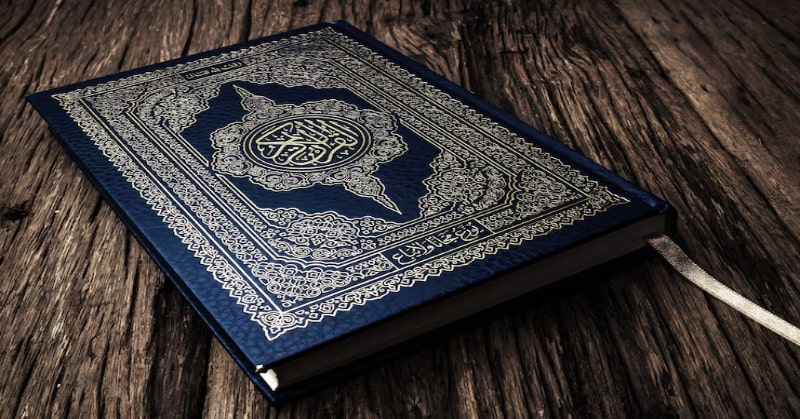
In an age of spiritual confusion and fast remedies, many turn to ruqyah—the powerful Islamic practice of healing through the recitation of the Qur’an. But despite sincere efforts, countless people report minimal results or temporary relief. The reason? Often, it is not the ruqyah itself that is weak—but the manner in which it is performed.
A major, overlooked flaw in modern ruqyah is the neglect of tajweed—the sacred science of proper Qur’anic pronunciation. Without tajweed, reciting the Qur’an becomes careless, distorted, and even dangerous. In the context of ruqyah, where precision is power, the lack of tajweed can render the spiritual weapon dull and ineffective.
This article explores why tajweed is essential to effective ruqyah, and how healing cannot truly take place when the words of Allah are recited without their rightful majesty and sound.
QURAN WAS SENT DOWN WITH PRECISION
Allah revealed the Qur’an not just in words—but in sound. The rhythm, intonation, and articulation of every verse carry spiritual, linguistic, and even physical force. The Qur’an declares:
> “Those to whom We have given the Book, recite it with its true recital; they [are the ones who] believe in it…”
(Surah Al-Baqarah 2:121)
The “true recital” (haqqa tilawatihi) includes understanding and following tajweed—the art of reciting each letter with its due right.
Tajweed Is Not Decoration — It’s Protection
Many assume tajweed is a form of beautification—optional, cosmetic, or limited to imams. In truth, tajweed is a form of haqq—a right owed to the words of Allah. The early scholars understood that mispronouncing even a single letter could change the meaning, or worse, strip the verse of its power altogether.
In ruqyah, where the words are not merely read but used as a spiritual weapon, the stakes are even higher. Without tajweed:
Words become distorted, losing their impact on the jinn.
Verses may become incomprehensible, losing the spiritual rhythm that pierces the unseen.
Mispronunciations may weaken the healing, making the recitation sound like poetry instead of divine command.
Jinns Understand Language, Sound, and Power
The jinn are intelligent beings. They understand human language, emotional tone, and most importantly—the Qur’an. In ruqyah, when a person reads ayat meant to drive them out or burn them, the jinn listens not only to the content, but to the force of the delivery.
Just as a soldier must fire a weapon with precision, the raqi must recite the Qur’an with:
Correct articulation of letters (makharij)
Proper elongations (madd)
Balanced rhythm and pauses
Grammatical integrity (which tajweed preserves)
Failing in tajweed is like trying to perform surgery with dull tools—or firing bullets that miss the target.
The Spiritual Difference Tajweed Makes in Ruqyah
When the Qur’an is recited with tajweed:
The heart opens to the words; both the raqi and the patient feel the vibration.
The atmosphere changes—the words penetrate the room with divine force.
The jinn reacts more violently—because the recitation is sharper, purer, and more threatening to them.
Many experienced ruqyah practitioners have observed that mispronounced verses produce little or no reaction, while the same verses, recited with tajweed, cause agitation, screams, vomiting, or even full jinn exits.
Examples of Common Mistakes That Ruin Ruqyah
1. “Ḍ” vs. “D” – Mispronouncing the letter Ḍād (ض) as a normal “dāl” (د) weakens the verse.
2. Skipping elongations – Turning “maliki yawmid-deen” into a rushed sentence strips the ayah of its weight.
3. Missing the rules of ghunnah – Failing to nasalize letters like noon and meem as required makes the flow unnatural and jarring.
4. Wrong stops – Stopping at the wrong word can change the entire meaning of an ayah.
These are not minor mistakes—they fundamentally disrupt the spiritual code embedded in the Qur’an.
The Prophet’s Example
The Messenger of Allah (peace be upon him) was the ultimate reciter. He recited slowly, clearly, with perfect tajweed. He taught the companions not only the words, but the pronunciation.
> Ibn Mas’ud said: “I heard the Prophet (peace be upon him) recite, and he recited beautifully, letter by letter.”
To follow his Sunnah in ruqyah is to uphold the same respect and care in pronouncing the verses as he did. Anything less is negligence.
How to Fix This in Your Ruqyah Practice
Whether you’re a raqi or simply reciting ruqyah on yourself or loved ones, you must honor the power of tajweed. Here’s how:
1. Study the basics of tajweed
Even a short course or YouTube series by a qualified teacher can correct the most harmful mistakes.
2. Listen to professional reciters
Use high-quality recordings (like Husary, Al-Minshawi, or Al-Afasy) to absorb the rhythm and accuracy.
3. Record your own recitation
Play it back and compare it to correct versions. Identify your mistakes.
4. Never rush your ruqyah
A slow, accurate 10-minute ruqyah is more powerful than a sloppy 30-minute session.
5. Practice daily
Just 5 minutes a day of tajweed practice over one month can transform your entire approach to ruqyah.
Conclusion: Words Have Power — When Spoken Right
The Qur’an is not a spellbook, nor a poetic recitation—it is kalamullah, the speech of Allah. Its words are precise, rhythmic, and alive. When recited with tajweed, they strike fear into the devils and healing into the hearts.
Neglecting tajweed in ruqyah is like trying to light a fire with wet wood. You may have the right ingredients, but the spark won’t ignite. When you bring tajweed into your ruqyah, you are not just reciting—you are activating the spiritual force that Allah placed within every sound, every syllable, every verse.
Let your recitation be sincere, correct, and sharp—and with Allah’s permission, healing will descend.

